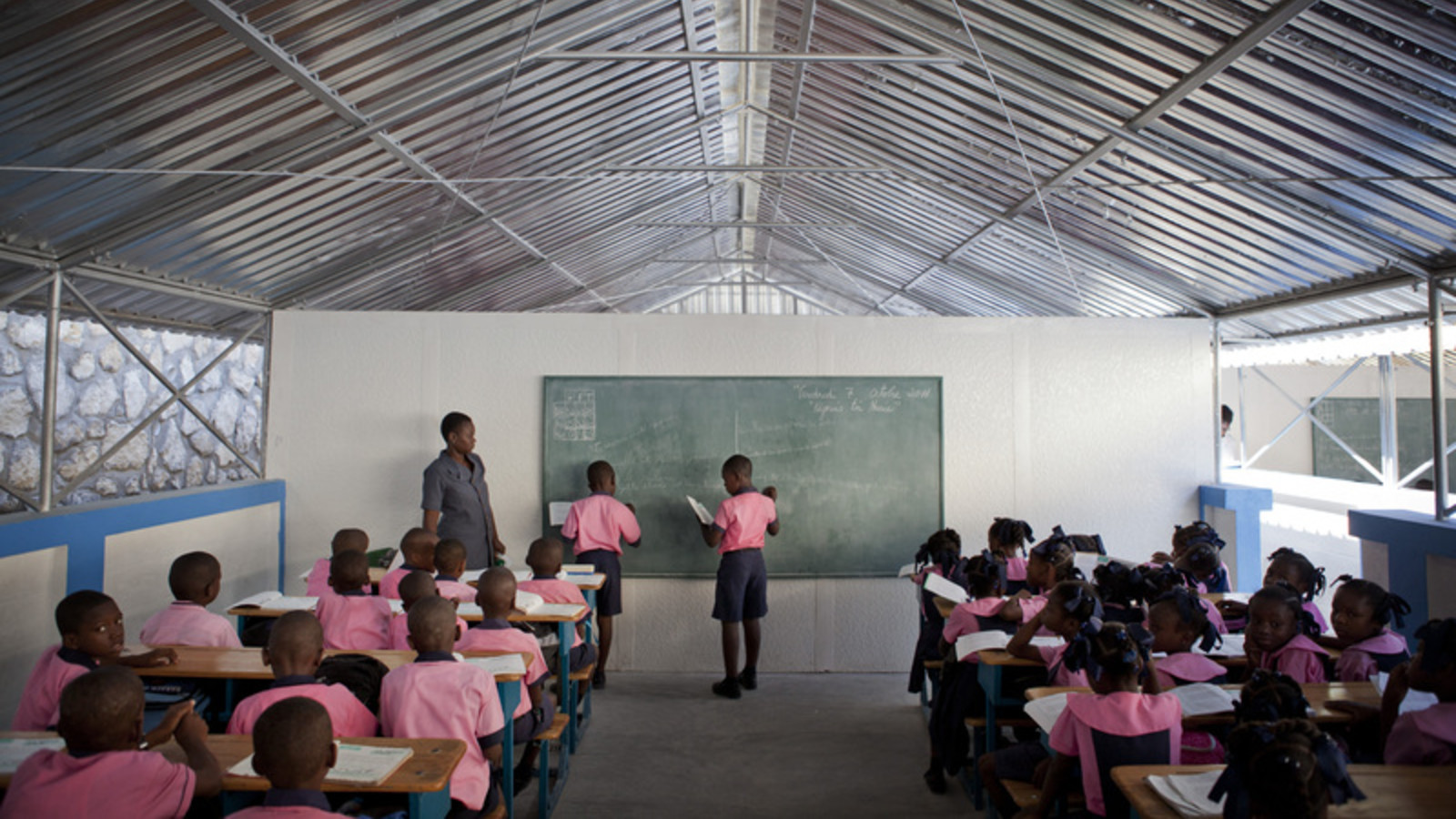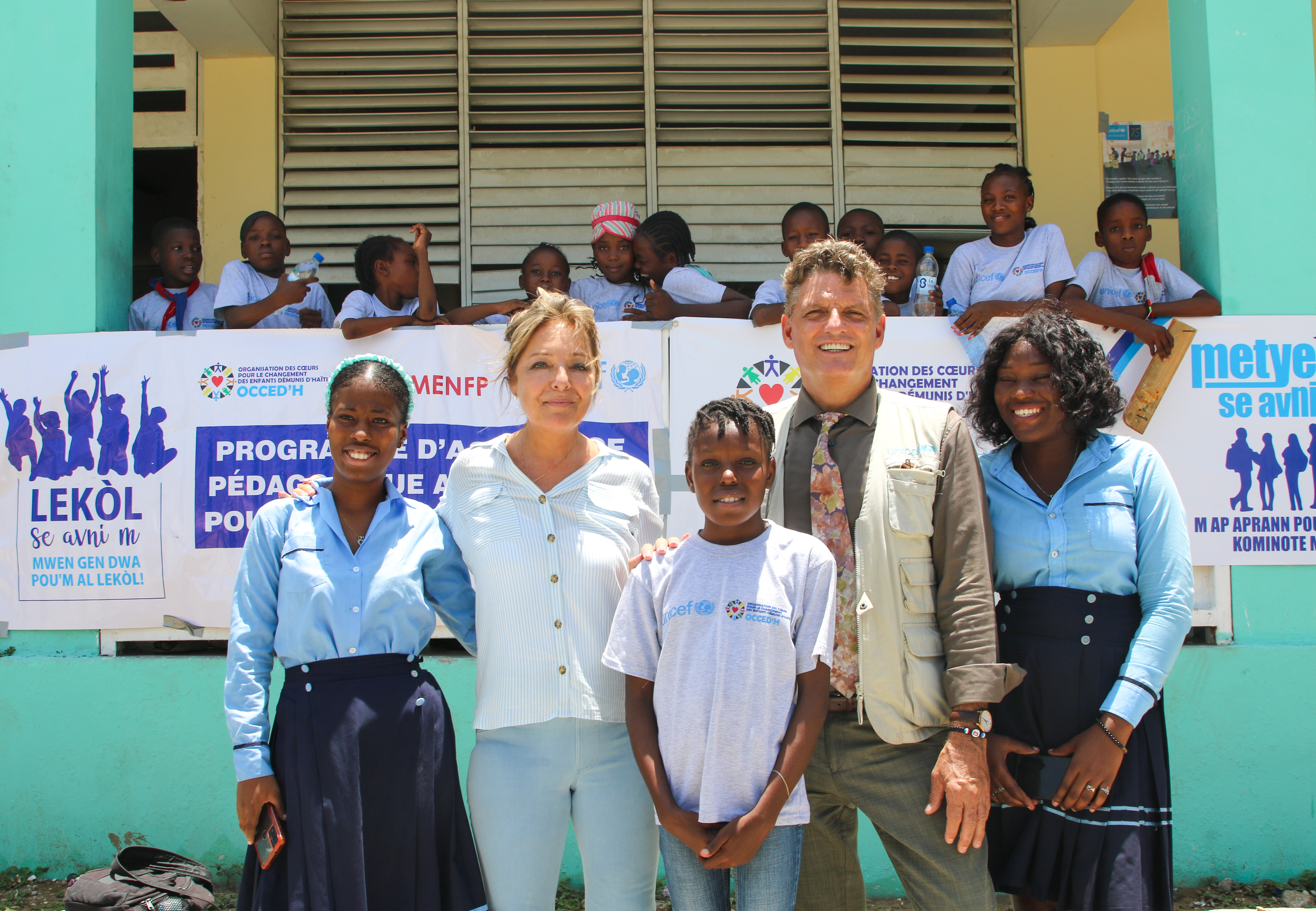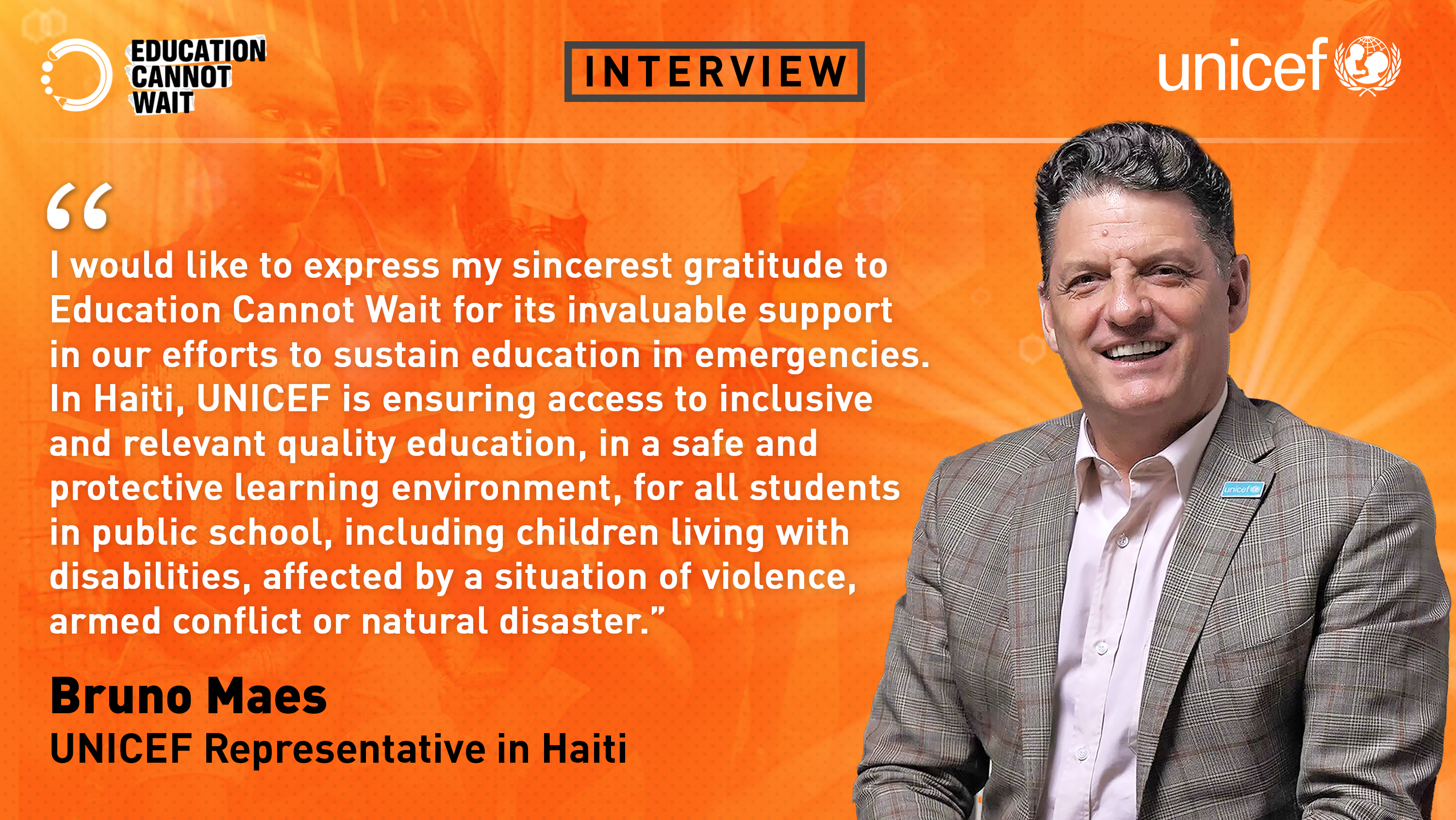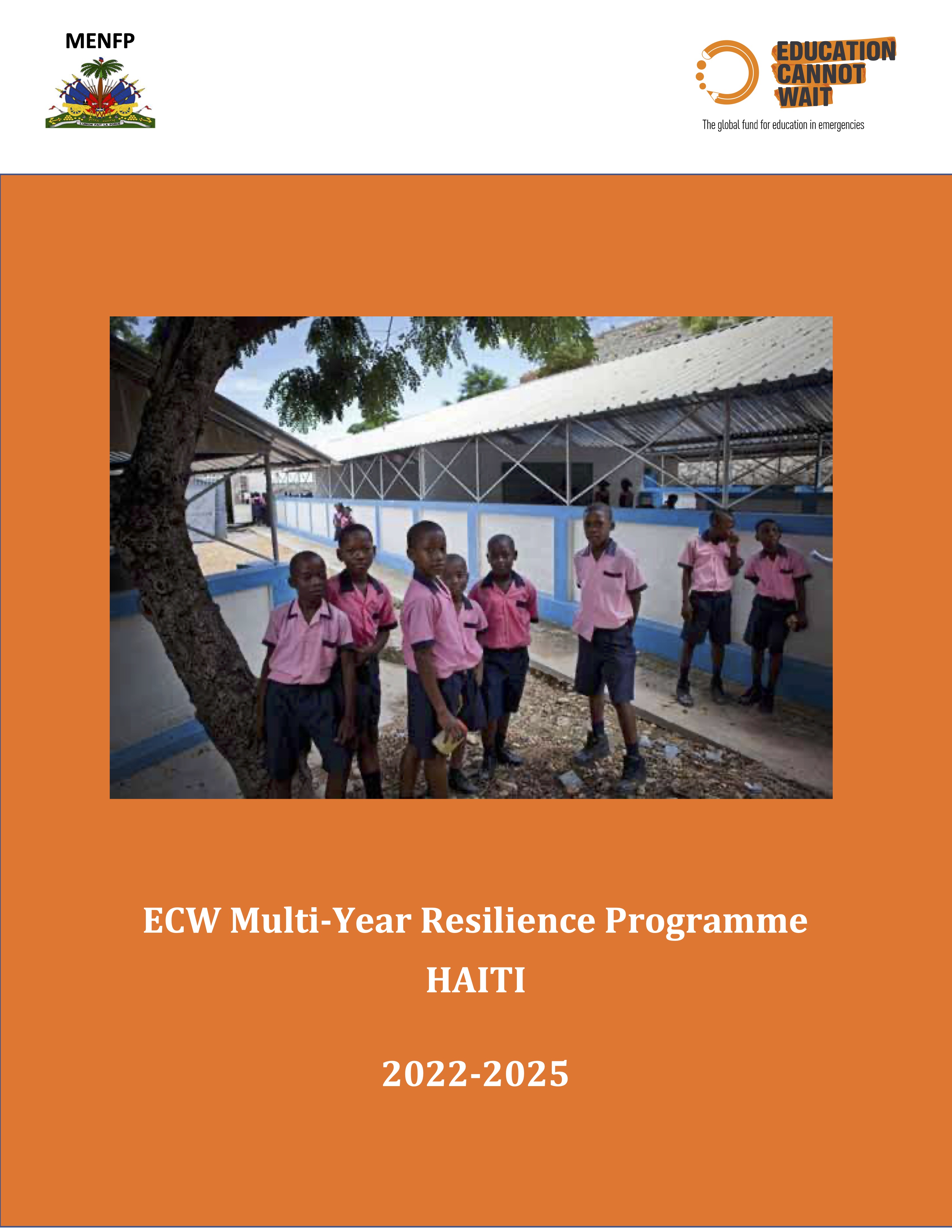ECW in Haiti
Haiti has suffered multiple crises – including earthquakes, gang violence and political unrest – over the years, affecting children and youth’s access to a continued and inclusive quality education. Only a little over half of Haitians have access to preschool, and much fewer are able to go on to secondary education. Most of the country’s schools are private, making it even more difficult for poor or displaced families to access learning opportunities for their children. Over half of the country’s schools do not have water or toilets, and three quarters have no electricity. Education Cannot Wait (ECW) has been supporting learning opportunities across the country. In 2022, ECW launched a Multi-Year Resilience Program to increase access to formal and non-formal education, and improve the quality of teaching and learning by reaching the most marginalized children and adolescents.
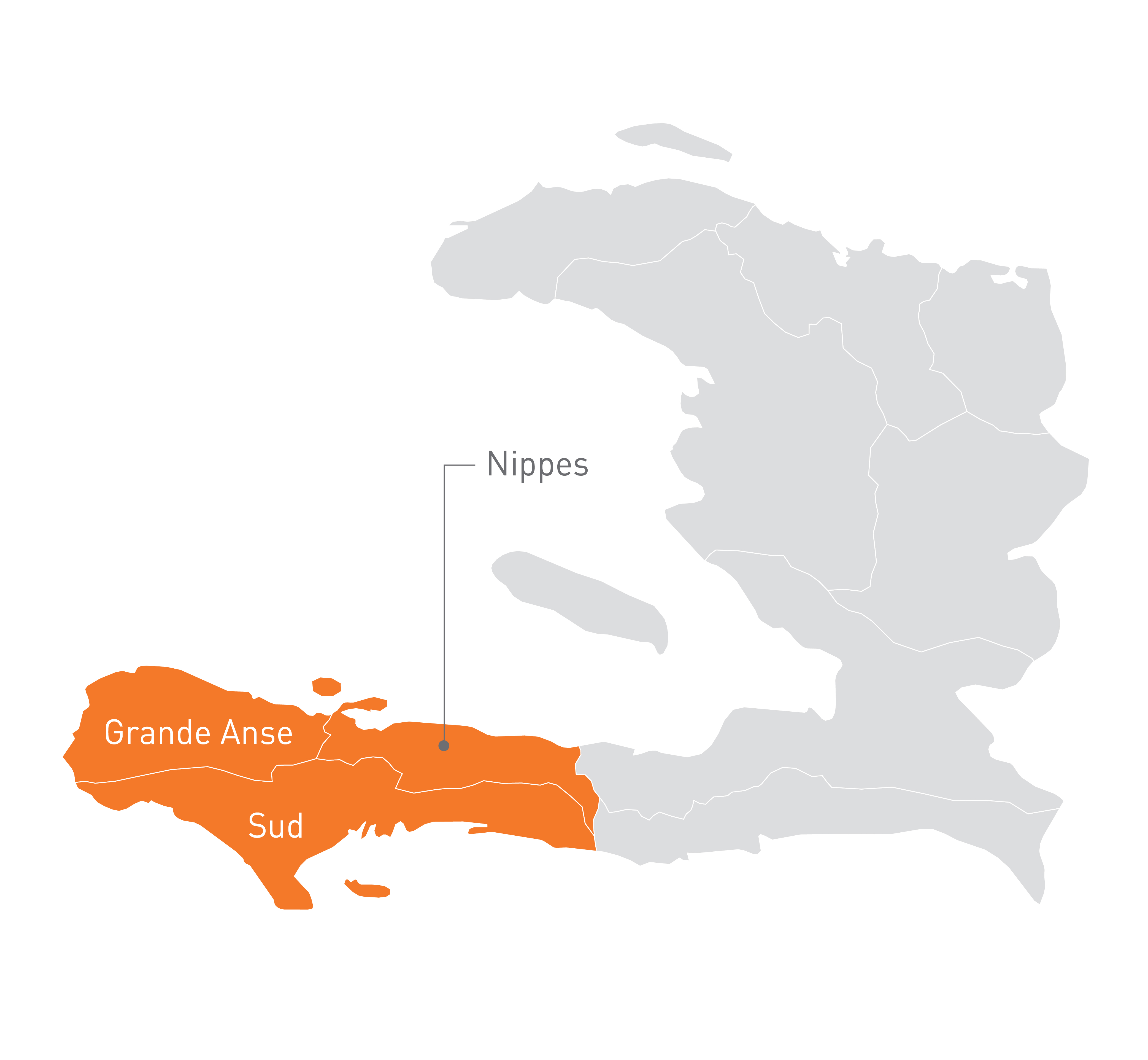
Investments
Financial Information
National Counterparts
Ministry of National Education and Vocational Training and National Office for Partnership in Education
Results
Additional Results
- Number of children and adolescents supported with school feeding programmes: 11,334
Programme Info
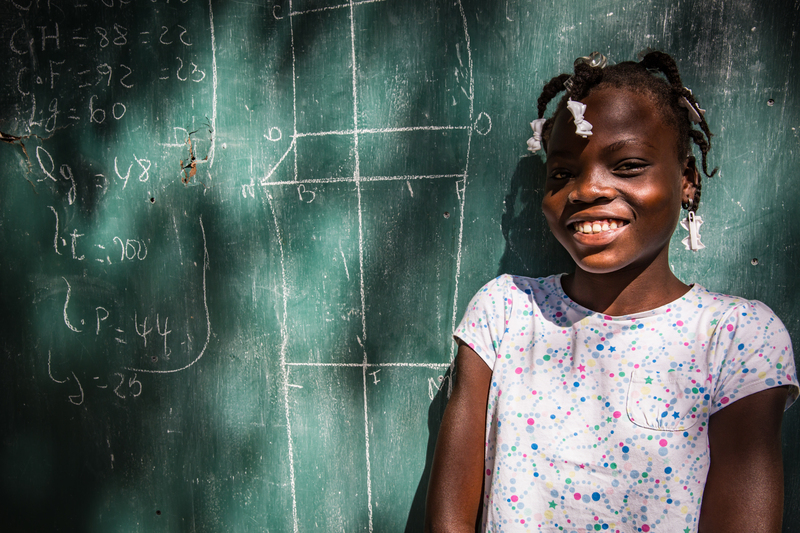
The MYRP aims to ensure that emergency humanitarian assistance is linked to development interventions and that immediate needs are addressed through sustainable actions that build resilience. It guarantees the right to high-quality, inclusive education and training for the most vulnerable girls and boys, including adolescents, in a protective, inclusive and gender-equitable environment. The programme targets the most marginalized girls and boys, including adolescents and children with disabilities, and aims to strengthen the education system and its institutions.
ECW support reaches crisis-affected girls and boys, delivered through a collaborative implementation arrangement with UNICEF and the World Food Programme. The programme prioritizes inclusive and gender-equitable access to education in protective environments. It will also promote inclusive, holistic, and gender-equitable quality education, invest in strong governance and resilience of the education system, and mobilize additional funds for the MYRP implementation.
Programme Components
-
Providing access to education: The most vulnerable girls, boys and adolescents aged 3-18 years have access to education in a protective environment that meets their needs.
-
Establishing holistic learning environments for quality education: Girls and boys aged 3-18 years from the most vulnerable families benefit from holistic education that promotes academic achievement, socio-emotional development and physical and mental well-being.
-
Supporting system strengthening: The governance and resilience of the system are improved to better meet the educational needs of students in crisis situations.
For more information on ECW's work in Haiti, please contact Country Lead Graham Lang (glang@un-ecw.org) and Programme Manager Fatou Niang (fniang@unicef.org).

